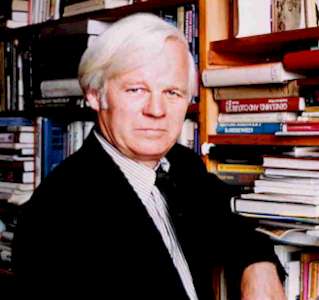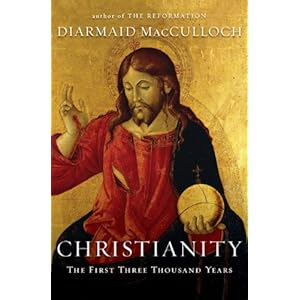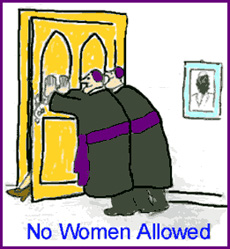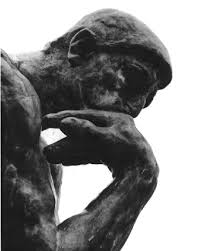
An argument for belief in God attempts to establish credible evidence for a divine overseer orchestrating, or being aback of, the universe. The direction of
all argumentation concerning God's existence is to start with what we do know and extrapolate outward to the best possible conclusion concerning things we don't know.
For example, the
Cosmological Argument proposes that from matter we can extrapolate that there must have been a designer because all of what is, is contingent (i.e., dependent on other material things). That everything material is contingent necessitates that there must have been one non-contingent, or wholly independent beginning to everything else. This wholly independent thing is often referred to as "God."
From the example of the Cosmological Argument, it can be seen that the argument progresses from what is known (the existence and characteristics of the material world) to what is unknown (God). A note on that point: by 'God as an unknown', I simply mean that the argument itself does not prove the existence of a super-being so much as it illustrates a logical correlation; namely, that the material world seems to exist in such a way that it must have derived its existence from a point not dependent on it. However, correlation is not causality, so the Cosmological Argument cannot be used as a proof proper for God's existence; it can, however, be used as a reduction to a possible conclusion; a "rational warrant", as it were.
Which brings us to the point of this article: I do not consider rational warrant to be anything more than begging the question (circular reasoning), or a cheap rhetorical trick that ends in relativism.
First, anyone reasoning along the lines of a classic proof such as the Cosmological Argument already has in mind the inevitable conclusion, which is fine if you are attempting to defend the cosmological proposition for God. As a friend recently reminded me,
all debate happens that way: the opposing sides know what their conclusions are, and they argue accordingly toward those conclusions. But notice that the conclusions are already assumed. Philosophically speaking then, arguments for and against the existence of God already assume the conclusion to the proofs they offer. This is wholesale question-begging: X is true, this is how X is true, therefore X is true; or, God is real, the cosmological argument shows that, therefore God is real.
Now, as my friend stated, and I agreed, such reasoning is fine in a debate setting because it would be a little improper to go into a debate not knowing your position on the resolution. However, for a philosophical proof and a didactic aide, such reasoning only gives a person logical permission to assume a plausible conclusion; that is, "rational warrant." And rational warrant, is
not proof. Rational warrant cannot firm up the link between correlation and causality, therefore it is not conclusive proof. Rational warrant
is only a fancy way of giving yourself permission to believe a given plausibility clause when the hard work of reasoning through a syllogism is over.
That brings us to my second point: "rational warrant" is a cheap rhetorical trick. Suppose I was to say to you, "there is a 900 lbs. hungry tiger in the next room," and you realised there was no door between you and the hungry tiger. You would suddenly have a swell of emotions that correlate to your inward ideas of a hungry tiger, what that tiger is capable of doing to a person, and your own need for safety. You would, in fact, have what Kant described as a
noumenal experience.
Even before you encountered the hungry tiger, you would start experiencing that tiger as if it were real, and as if your life were in danger because of it. Then you would take whatever measures you had to to ensure your personal safety. All very logical, and all quite appreciable. However, you still haven't received any proof of a hungry tiger in the next room, so you have effectively believed my proposition that "there is a 900 lbs. hungry tiger in the next room" because it was reasonable for you to believe me (at least for the purpose of this illustration!). In effect, you had "rational warrant" to believe my claim.
Now let's say that two days later, you learned that I was just tricking you. You would be right to be irritated, but you would also recognise the falsity of your "rationally warranted" beliefs concerning the 900 lbs. tiger. And this is where the notion of "rational warrant" really breaks down: simply reasoning to a plausible conclusion is not proof, and that's all "rational warrant" is: reasoning to a plausible conclusion. It is a stylised flash of rhetoric that gives a veneer of reason to a belief-claim.
Because "rational warrant" is a catch-phrase or byword indicating the right of every person to believe whatever they'd like based on their subjective experience of a thing, or a proposition, it reduces even further to relativism. That is, the notion that what I believe is just as true and valid as what you believe, even if we disagree. Objective reality (A is A) is thrown out the window, so to speak, in favour of a
solipsistic encounter with the world. Which is fine if you're a solipsist, but for those of us who don't simply assimilate external realities into our self-projections on the world, the relativism of "rational warrant" simply doesn't supply a useful tool to interacting with the world.
The idea of "rational warrant", as I recently learned, can only apply to those beliefs which are actually true. In effect, this means that a vast majority of beliefs held through history have
not been rationally warranted. But that can only be known in retrospect because once a belief is shown to be false, it is no longer rationally warranted, and it can only be shown to be false after people have already believed a certain belief and thought themselves rationally warranted in doing so -- that was a mouthful, I know.
So for a believing Christian, say, they would consider their beliefs "rationally warranted" because they are able to determine correlations between what they experience (mysticism), the contingencies in nature, and what they already assume about supernatural realities (e.g., that God exists). Oddly though, a believing Christian would disagree with the beliefs derived of a Muslim experience, and visa versa, even though they may agree on a good number of things, too. And both the Christians and the Muslims would be "rationally warranted" for both their agreements and disagreements surrounding their particular metaphysic.
Given the clash between competing belief systems, how can "rational warrant" be rationally claimed? Simple answer: it cannot. As I stated before, it is a cheap rhetorical trick used to prop-up the arguments of one set of beliefs, sometimes in the face of a competing set of beliefs. And if competing beliefs cannot both be true (see:
law of non-contradiction), then anyone claiming rational warrant for their beliefs has also to claim a relativistic mindset concerning reality.
In part II, I will discuss how a relativistic mindset toward reality not only denies reality but also reduces belief-sets (e.g., Christianity, Islam, religion in general) to agnosticism.
***Thank-you to AgnosticInnocence for the picture.***









































And why build the bloody thing inland? What kind of a stupid waste is it to have a giant, brand new boat sitting inland? At least make the damn thing funtional! Ooo! I know: load on board the young earth creationists two-by-two and let them float away somewhere where we don't have to listen to their illiterate twaddle about the earth being 6000 years old.
And on that point (about the earth being 6000 years old), I think Sam Harris summed it up best when he wrote in Letter To A Christian Nation, "This is, incidentally, about a thousand years after the Sumerians invented glue" (Vintage, paperback ed., p. x - xi). But, if you're going to beat a dead horse, you may as well have glue as an end-goal. Then maybe the young-earthers will have a little something-something to seal their planks and beams against the unfloods and inland breakers.